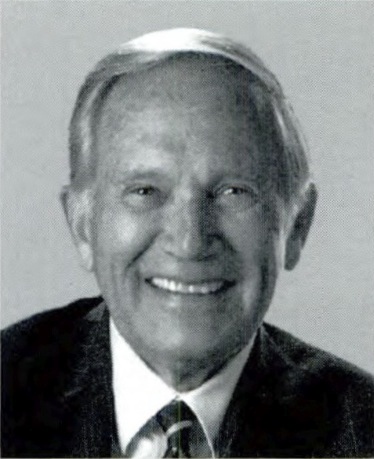
Don Edwards, a champion of civil rights and the environment who represented his native San Jose in Congress for more than three decades, has died at the age of 100.
Edwards' son, retired Santa Clara County Superior Court Judge Len Edwards, told the San Jose Mercury News the former congressman died Thursday evening at his home in Carmel.
"He died peacefully and with a great deal of grace," Len Edwards said. "He died as he lived, an elegant man."
The New York Times summarizes Edwards' record as a lawmaker focused on preserving and expanding civil rights protections:
He entered Congress in 1963, in time to vote for the Civil Rights Act of 1964 and the Voting Rights Act of 1965. After becoming chairman of the Judiciary Committee’s subcommittee on civil and constitutional rights, he managed the Equal Rights Amendment on the House floor in 1971 and was the floor manager for all other civil rights bills.
Effective at working with Republicans, among them Hamilton Fish Jr. of New York, he was the chief House architect on civil rights bills through the 1991 law that overturned eight Supreme Court decisions narrowly interpreting the employment rights of women and minorities.
Mr. Edwards was able to work easily with Republicans on rights measures even though they rarely voted alike on anything else. He was an all-out liberal on issues from the impeachment of President Richard M. Nixon to the 1991 Persian Gulf war.
He retired in 1994 with a lifetime rating of 97 percent from the liberal Americans for Democratic Action, which he headed from 1965 to 1967. In 20 of his 32 years in Congress, he had a 100 percent score.
He said the most important of the civil rights bills he handled was the 1982 extension of the Voting Rights Act. In response to written questions in 2012, he said, “If you can’t vote, you are not a real citizen.”
Edwards was not gentle in his criticism of those in government and the courts who failed to uphold rights guaranteed by the law and the Constitution. In a 1986 op-ed in The New York Times, he argued against President Ronald Reagan's nomination of Supreme Court Justice William Rehnquist to become the tribunal's chief justice. As a Justice Department lawyer, Edwards noted, Rehnquist had proposed a constitutional amendment that would effectively legalize racial discrimination in public schools.